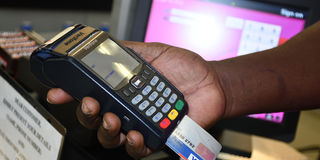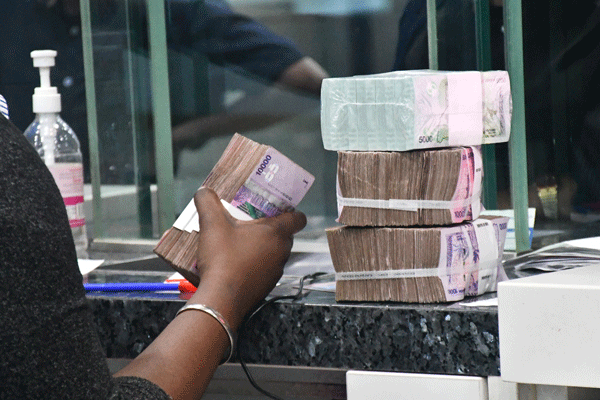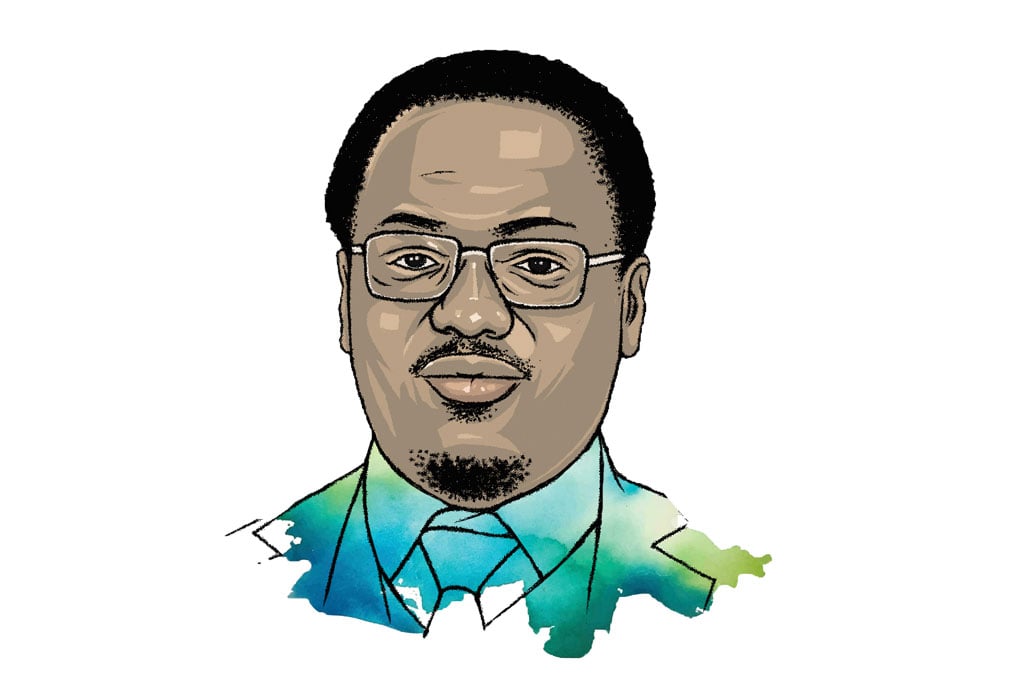Prime
How e-wallets make shoppers spend more

A manager at Game Stores holds a visa card machine as he transacts for a client. Many businesses are tending towards offering online services as the economy adapts to cashless transactions.
PHOTO/EDGAR R. BATTE
What you need to know:
To some people, having physical cash limits what they can do with their money compared to mobile money.
With the outbreak of Coronavirus (Covid-19), there was a debate worldwide on whether to shun physical money and go electronic as there were worries that the virus could be spread through physical cash.
But how does one decide which channel to use? While some say using cash is equivalent to being stuck in the past, others believe it saves them from incurring extra costs associated with using the e-wallet.
Does spending using physical cash make people spend more or it limits you especially when you have your money electronically?
This is a complicated question and it involves seeing humans as fundamentally irrational creatures, in various ways.
This pain of parting with your money can keep you from overspending, but it can rob you some joy in consuming.
For instance, it has been shown psychologically that people feel more pain when they lose about Shs400,000 than the joy they feel on gaining Shs400,000. In other words, the pain of the loss stings more, although the two sums are exactly the same.
Mr Job Atwine (not real names) prefers spending money by cash. “Here, I monitor every single coin I’m spending. Besides I believe by seeing hard cash in my wallet. But with electronic money on my phone the impulse to spend is high especially on petty things such as airtime, data and some bills,” he says.
Spending on a credit card clearly has effects on how people spend, which numerous studies have shown.
However, it’s also been shown that credit card bills, when they arrive, cause enormous pain for the receiver. So much so, in fact, that behavioural economists believe this explains the continuing popularity of debit cards.
Psychology behind
According to the British Broadcasting Corporation (BBC) news website, Mr Emir Efendic, a post-doctoral psychologist and behavioural economist at the University of Louvain, what is important is feedback.
“With credit cards, you do not get instant updates. But with online banks, you see the amount deducted immediately,” Efendic says, adding “If you lose feedback, then yes, you will be spending more.”
With credit cards, the pain of payment is delayed (until that monthly bill arrives). The great ability of credit cards, in other words, is that they wield the psychological power of separating the pleasure of buying from the pain of paying.
Electronic payments
What about using e-wallets? The implication for consumers, with the ongoing digitisation of payments, is that they lose some control over their spending and face the risk of over spending.
But with e-wallets, users can see that money is deducted immediately. Mr Edirisa Sembatya, a business trainer and managing director at Finding XY, says he likes getting a notification whenever he completes a transaction on phone because his balance and payments are updated in real-time. This is instant feedback and does not have the same effect as a credit card.
Having physical cash in the wallet sometimes is also risky. “This can easily be robbed from you either at home or anywhere. Sometimes, you stand a high chance of getting counterfeit notes,” he says.
Having physical cash, on the other hand, limits what you can do with your money compared to having mobile money.
Here, Mr Sembatya says you can easily transfer it to your savings in the bank, or pay for insurance or an investment plan of your choice. The temptations of spending it easily are minimal especially on unnecessary items.
He adds that in most cases, money tends to appeal to human desires. The best way is to have your money electronically, where you will have records of your transactions unlike when you have physical cash.
“Administration of your businesses becomes easy especially in cases where you have multiple sources to get money. You do not need to run from one client to another to collect money that your clients owe to you. People will pay you electronically. Here, you limit the chances of your sales agents or debt collectors siphoning on your money,” he adds.
According to Bank of Uganda data, the total value of mobile money transactions has grown from Shs37. 4 trillion ($9.7 billion) in June 2016 to Shs63 trillion ($16.3b) in June 2017, while the number of registered customers has increased from 19.6m to approximately 22.9 million.
Credit cards
Value
With credit cards, the pain of payment is delayed (until that monthly bill arrives). The great ability of credit cards is they wield the psychological power of separating the pleasure of buying from the pain of paying.




